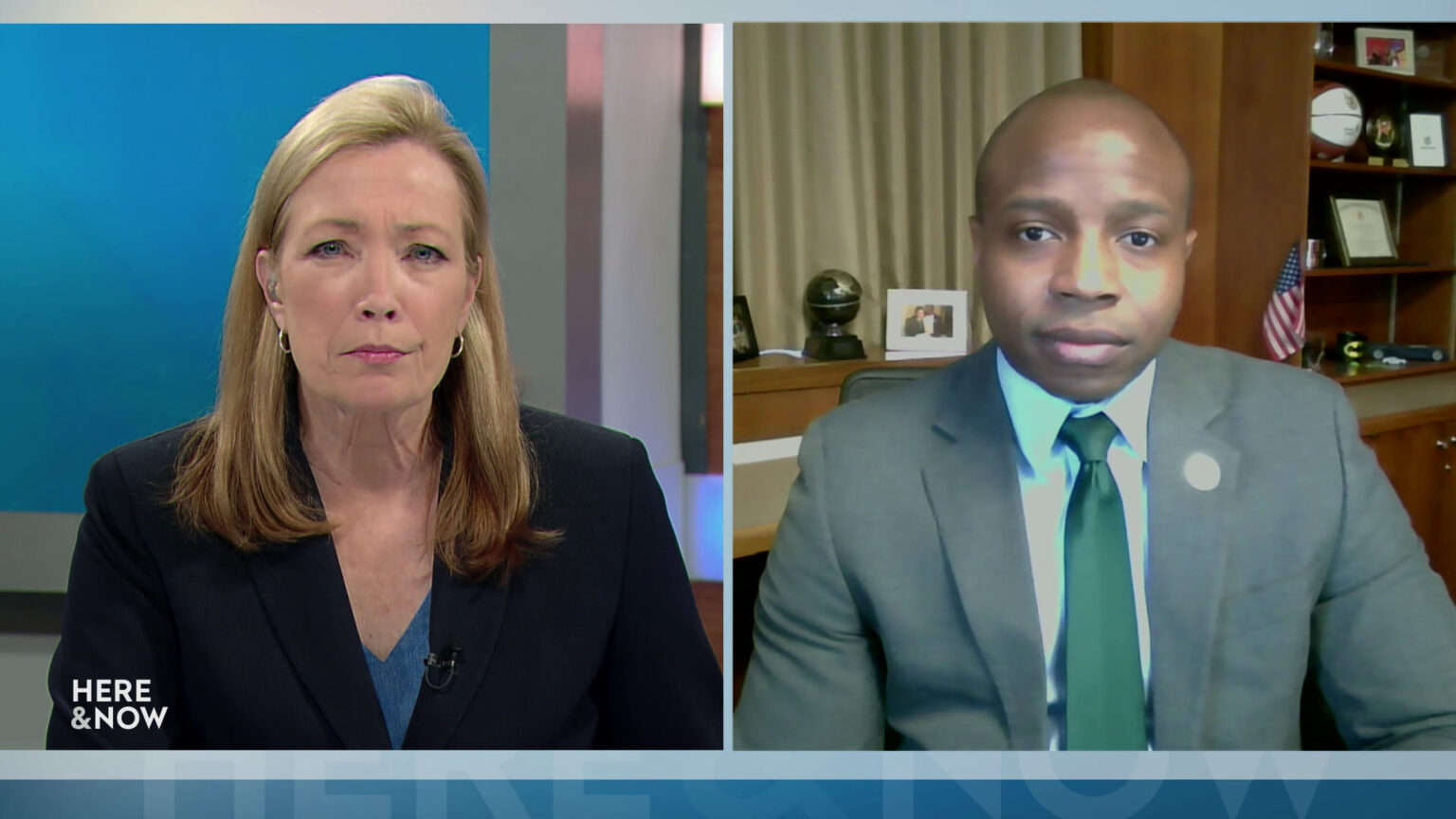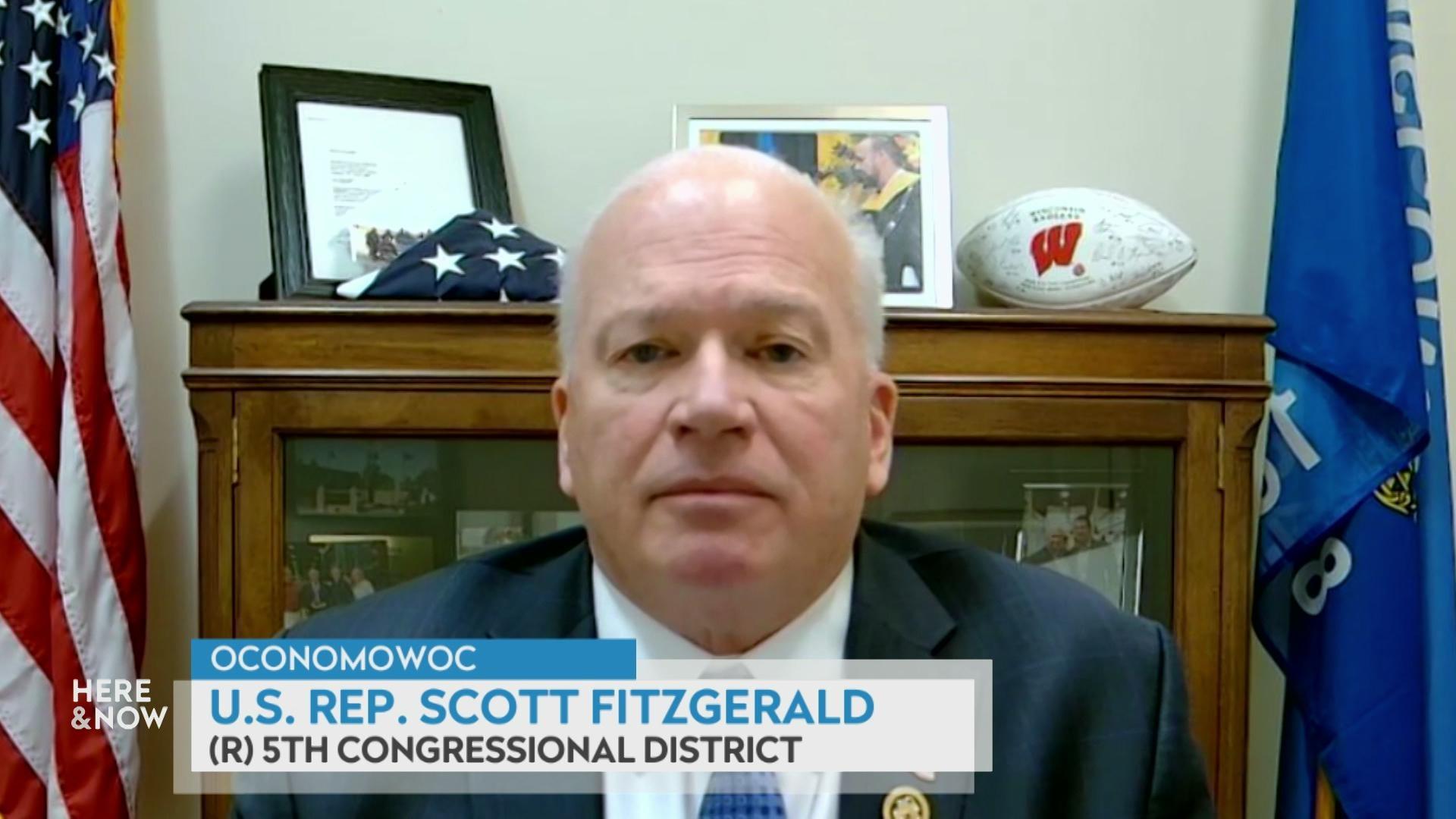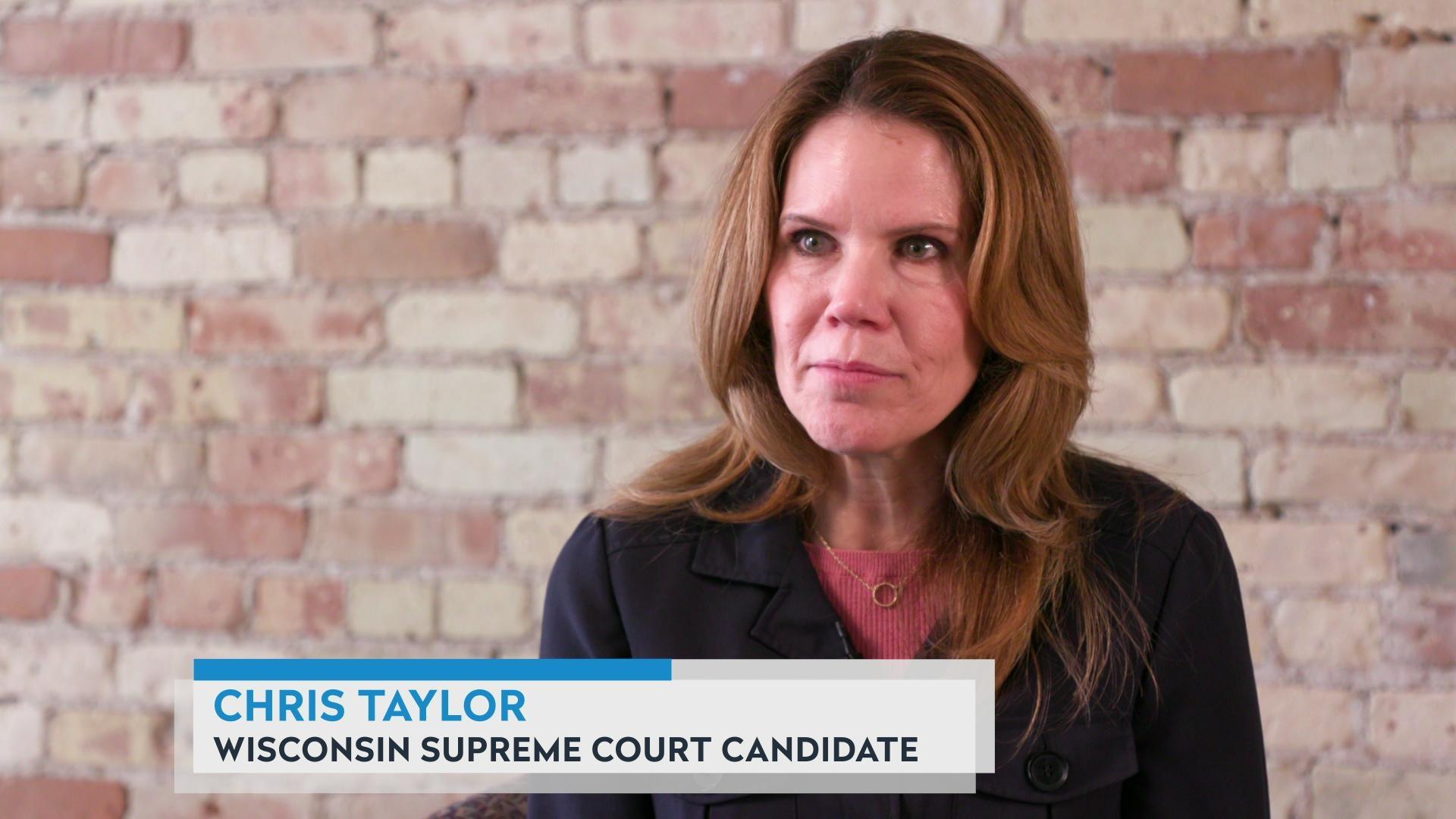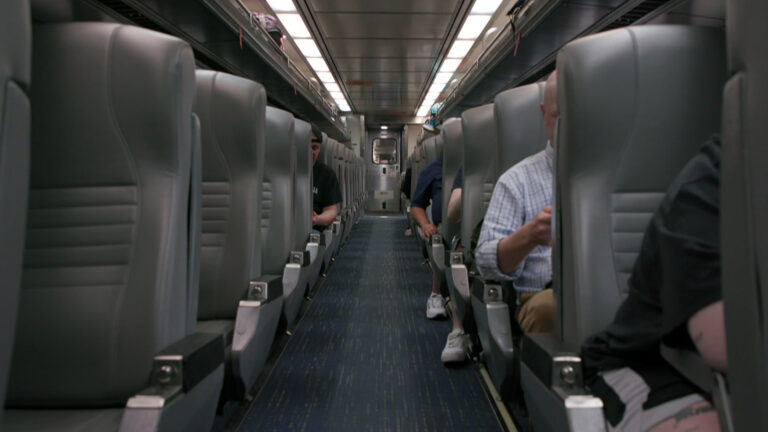'Here & Now' Highlights: Mayor Cavalier Johnson, Angela Lang, Mordecai Lee, Michael Ford
Here's what guests on the April 8, 2022 episode had to say about the spring vote in Wisconsin, including a landslide victory for the first elected Black mayor in Milwaukee, why an influential community group did not endorse in the race, what culture wars bleeding into local races means, and implications for the fall election.
By Frederica Freyberg | Here & Now
April 11, 2022

Frederica Freyberg and Cavalier Johnson (Credit: PBS Wisconsin)
The newly elected Milwaukee mayor, 35-year-old Cavalier Johnson, is the first elected Black mayor and the first millennial to run the city — he called it a “new day” for Milwaukee. Angela Lang, the executive director of Black Leaders Organizing for Communities, explained why the group did not endorse in the mayor’s race. UW-Milwaukee political scientist professor emeritus Mordecai Lee said Cavalier’s landslide victory over his conservative challenger means the city has cemented its multiracial Democratic Party-aligned political identity. UW-Oshkosh public administration professor Michael Ford described what’s wrong with ostensibly non-partisan local elections turning hyper-partisan.
Cavalier Johnson
Milwaukee Mayor
- Johnson described what it means to him to be the first elected Black mayor of Milwaukee.
- Johnson: “One of the first people that I spoke to that night was a nine-year-old African American boy … who is growing up in the same sort of depressed, challenged neighborhoods that I grew up in in Milwaukee. Now he can see his own reflection in the highest office in the city, and I think that’s very powerful and sends a message to people across Milwaukee that no matter where you come from, no matter how much your parents make, no matter the color of your skin or the neighborhood you grow up in, there’s a place for you in Milwaukee.”
- Johnson said his first priority was connecting with Republican leadership in the Wisconsin Legislature.
- Johnson: “I do believe the relationship had been broken. Unfortunately for the past over a decade, that broken relationship has put Milwaukee in a very precarious situation financially and in other aspects as well. So, why so critically important that we rebuild that relationship? Because Milwaukee is a value added to the state of Wisconsin. I’m working every single day with Republican leaders to bring the Republican National Convention right here to our state, right here to Milwaukee. But it wouldn’t be coming to Wisconsin, even though our state is the purplest of purple states, it wouldn’t be coming here if Milwaukee was not here. So this city certainly is a value added. I think it’s high time that we work with our partners in the Legislature to have them to realize that as well.”
Angela Lang
Executive Director, Black Leaders Organizing for Communities
- BLOC did not make an endorsement in the Milwaukee mayoral race based on both candidate’s responses for dealing with violent crime in the city.
- Lang: “This was not a decision that we made lightly, but given a lot of the conversations that we heard on doors specifically about how both candidates talked about policing was a challenge for us, and that wasn’t something that we could get over. And so in the primary, we released a statement staying out of the primary, but we’re very clear that we wanted to leave the door open in case people wanted to engage in a discussion of how we feel safety should be in our communities. Unfortunately, we didn’t hear anything from either campaign, so we had to move forward. There’s not much we could do. We want to move forward now that Mayor Johnson is elected through his historic win. We look forward to the future just as much as he does, and so we look forward to working with him. … We will be sending an email to the office to request a formal meeting so we can start to work together to make Milwaukee where everyone can thrive.”
Mordecai Lee
Professor emeritus, UW-Milwaukee
- Lee said Republicans did well in southeast Wisconsin in the spring election, but the landslide win in the Milwaukee mayor’s race was a positive for Democrats in the state’s largest city.
- Lee: “The race for mayor, even though it’s nonpartisan here in the city of Milwaukee, was just a blowout for the de facto Democratic candidate Cavalier Johnson. His opponent Alderman Bob Donovan was pretty openly affiliated with the Republican Party, so I think this is almost like what’s happened to state Supreme Court races. There’s a de facto Democrat and the de facto Republican, and it’s almost like there’s a “D” in … their names because it’s so thinly disguised. When you’ve got such a blowout of an election, more than two to one, I mean, that’s just really a landslide. So for Democrats in Milwaukee, it’s an indication that the city is becoming more Democratic. I think the most important trivia tidbit is that of the old white south side, the sort-of European ethnics/blue collar Reagan Democrats, which really anchored the career of Mayor Henry Maier, who was the mayor for 28 years — that this election on Tuesday was the last hurrah for the old south side. They’re gone. You know, they’ve retired. They’ve moved to the suburbs. The cops are no longer under a residency requirement. So the old south side is no longer that white conservative stronghold that opposed open housing with Father Groppi. Milwaukee is a majority-minority city, and Hispanics are as important and whites are fading. When you look at the suburbs, I think it was really great news for Republicans. There was a court of appeals race for sort of the collar counties that surround Milwaukee County. Milwaukee County has its own Court of Appeals district. And Republicans did very well. Again, there was a race that was thinly disguised, disguised as a non-partisan race, and the Republican won. The de facto Democrat lost. But I think what’s so significant is that after Trump showed weakness in Waukesha County and Ozaukee County, that sort of disappeared.”
Michael Ford
Professor, UW-Oshkosh Dept. of Public Administration
- Ford believes local elections, like those for school board, should remain non-partisan. Instead, he said culture wars are bleeding into such races.
- Ford: “It’s really unfortunate because it’s totally divorced from what’s really going on in the classroom. And I think we really saw this with the debate over critical race theory. Certainly, the GOP picked up on this as a way to score some political points and reengage some suburban voters who might have been turned off by Trumpism. But at the end of the day, it’s pretty divorced from the reality of what goes on in school districts.”
Watch new episodes of Here & Now at 7:30 p.m. on Fridays.
 Passport
Passport











Follow Us